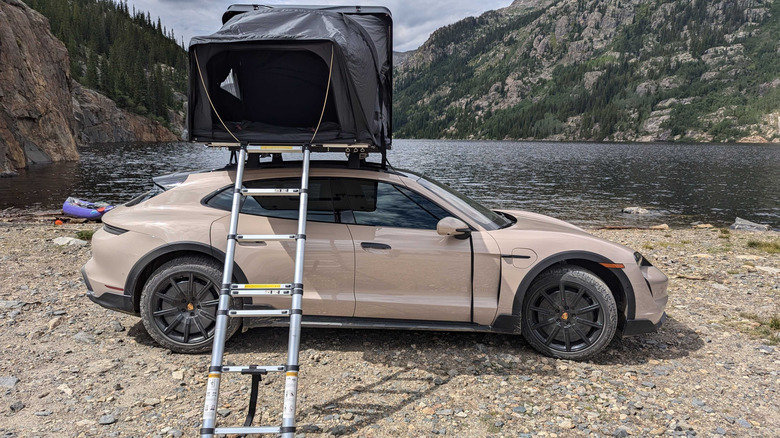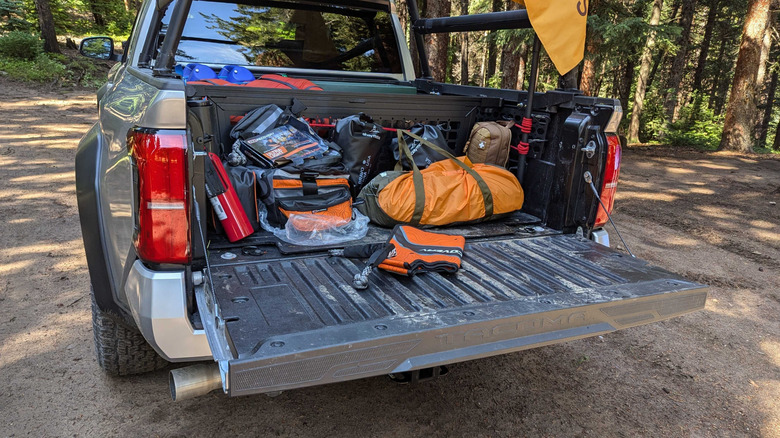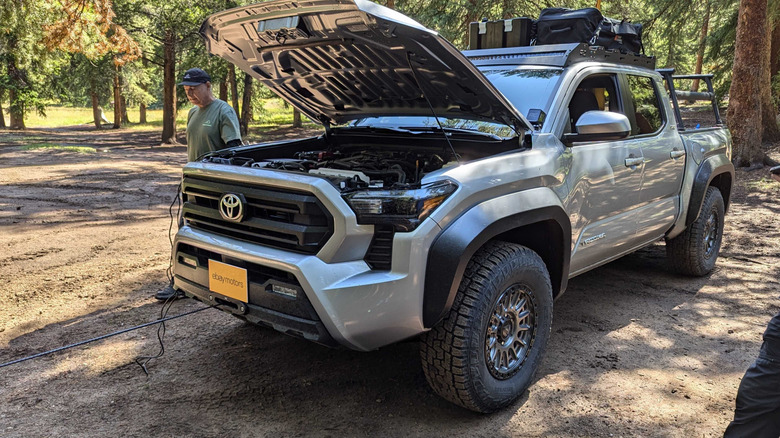The Overlanding Essentials An Off-Road Expert Says Every Vehicle Should Carry
If you're just getting into overlanding, you may be wondering what the bare essentials are beyond purchasing an off road-capable vehicle. When it comes to the very basics, there are a handful of items that will make your trip safer, more comfortable, and more successful.
We recently spoke to Sara Morosan, the owner of LGE*CTS Motorsports, at an eBay Motors overlanding event. Sara's company was responsible for modifying two of the vehicles used for the event. The entrepreneur has sold vehicle parts to overlanders since her teenage years, and has been part of the overlanding community for decades. So, it's fair to say she knows her stuff.
eBay Motors hosted SlashGear at the event, which was designed to show off the vehicles, parts, and accessories that could be purchased on the platform. As you'd expect, then, the trucks were well stocked, with everything from components like shock absorbers, to accessories like first aid kits.
A first aid kit is also one of the first items you should purchase before hitting the trail. They're essential for dealing with minor injuries, particularly since in some circumstances help may be hours away. A good box of basic medical supplies can help tide you or a companion over, until professional help is on-hand.
The basics center on food, sleep, and safety
When it comes to the basics, Sara was quick to point out food and sleep are important and certain accessories can improve the quality of both. "Obviously you need somewhere to sleep, whether that's a rooftop tent, a ground tent, or an air bed," the parts store owner said.
While the back seat of your SUV or the bed of a truck can double as an impromptu spot for rest, the quality of that sleep is likely to be poor, and that will catch up with you over the course of a multi-day trip. You're far better off dropping some cash on a comfortable sleeping solution. Food is just as important as sleep when it comes to long trips off the beaten path. Sara also mentioned how cooking is a way the overlanding community tends to bond. So, while you can rough it with things like dried meat and trail mix, you may not have the best time, and you could feel like you've come up short if some fellow overlanders have a cook out.
Battery powered portable coolers are a solid option for those interested in a high-end option, though a good regular cooler packed with ice will likely do the job on shorter trips. You'll also need a way to cook the food. Campfire cooking is a possibility, and the cheapest option, but it's also the most difficult. There are also a few areas where firewood is scarce, or open fires prohibited. A good camping stove or portable grill is likely your best bet.
Get set for self rescue
Finally, there are a couple of things that will keep you safe on the trail. A tool kit or recovery bag is pretty important, as Sara explains: "You don't know what kind of trouble you're going to run into, so you need to have the basic accessories you need to change a tire or do what you can to get yourself back to the road. A lot of the places you're going you're not going to have cell phone service or a way to contact somebody."
Traction boards can also prove invaluable, should your vehicle get stuck in sand or mud. They're often inexpensive and can give you the grip you need to get out of a hole — though you may not need them immediately if you're starting out on simple trails and planning your trips around good weather conditions. It's a perfect example of how vastly overlanding experiences vary, and how purchases beyond basic safety and comfort equipment will depend on the type of overlanding you intend to do.


